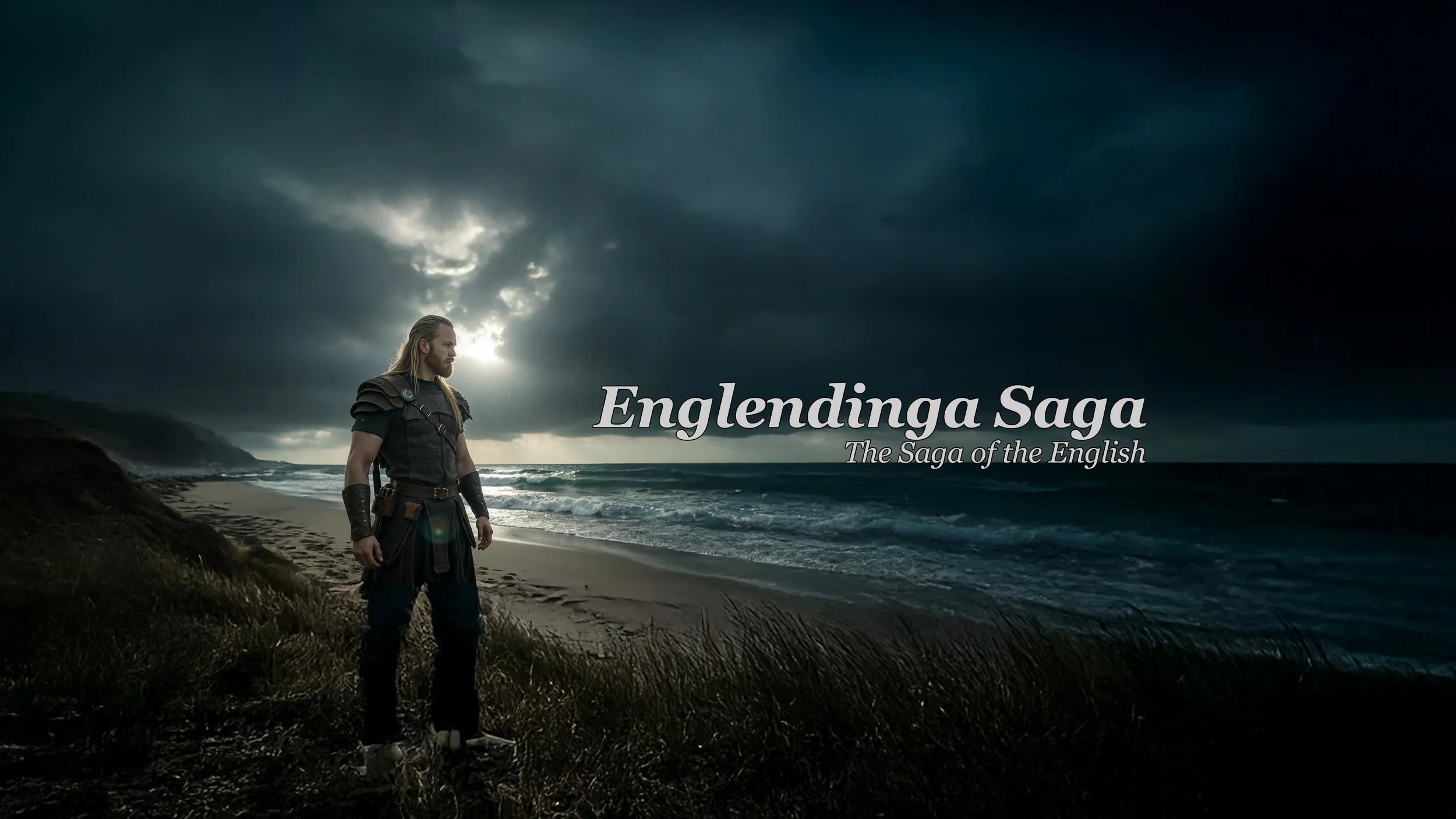
T H E W O R D H O R D E
Who knows, maybe you’ll learn something
Old Tongues. New Tales. Unearthing the raw power of Beówulf, the stark beauty of Anglo-Saxon verse, and the thunderous sagas of the Old Norse, this blog is your guide through the ancient words that shaped our world. Join us as we journey into the heart of heroic epics, explore the myths, and decipher the languages that echo through the ages.
The latest video from my Englendinga Saga YouTube channel
Ever wonder about the crazy stories behind England's past? Me too! This channel is where I'm attempting to untangle the heroes, myths, and family trees, focusing a lot on Beowulf. Warriors, monsters, good vs. evil – it's all in that Old English poem. As I dig into the poem's history and themes, we'll also be peeking at Anglo-Saxon and Old Norse culture, language, and mythology. Let's explore these ancient worlds together!
Echoes from Heorot
This article explores how the lesser-known Anglo-Saxon poem Widsith offers a crucial, darker perspective on the Danish royal family from Beowulf, particularly the relationship between King Hrothgar and his nephew Hrothulf. Widsith's laconic lines foreshadow Hrothulf's ultimate betrayal–his murder of Hrothgar's…..
The Clash of Kin
The article delves into the historical context of the Danes and Heathobardan feud, a significant underlying conflict in the world of Beowulf often overshadowed by the heroic narrative. It explores how King Hrothgar's attempt to end this cycle of violence through his daughter's marriage to Ingeld was doomed, as prophesied…..
Widsith
"Widsith" (Old English: Wīdsīþ, "far-traveller", lit. "wide-journey"), also known as "The Traveller's Song",[1] is an Old English poem of 143 lines. It survives only in the Exeter Book(pages 84v–87r), a manuscript of Old English poetry compiled in the late-10th century, which contains approximately one-sixth of all surviving Old English poetry. "Widsith" is located between the poems "Vainglory" and "The Fortunes of Men". Since the donation of the Exeter Book in 1076, it has been housed in Exeter Cathedral in southwestern England. The poem is for the most part a survey of the people, kings, and heroes of Europe in the Heroic Age of Northern Europe.


